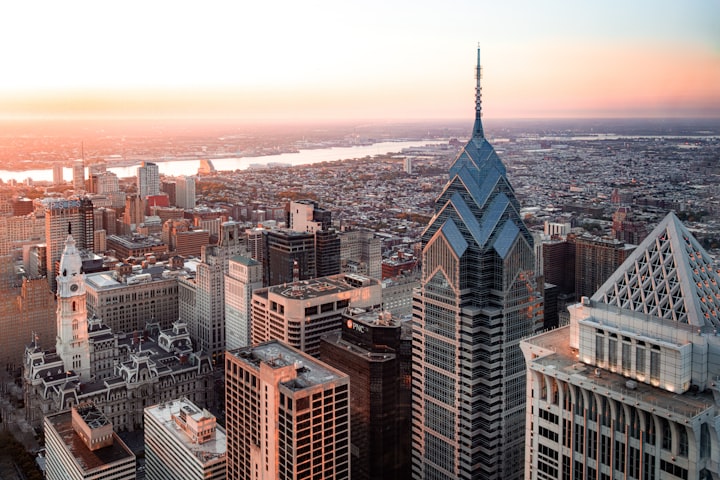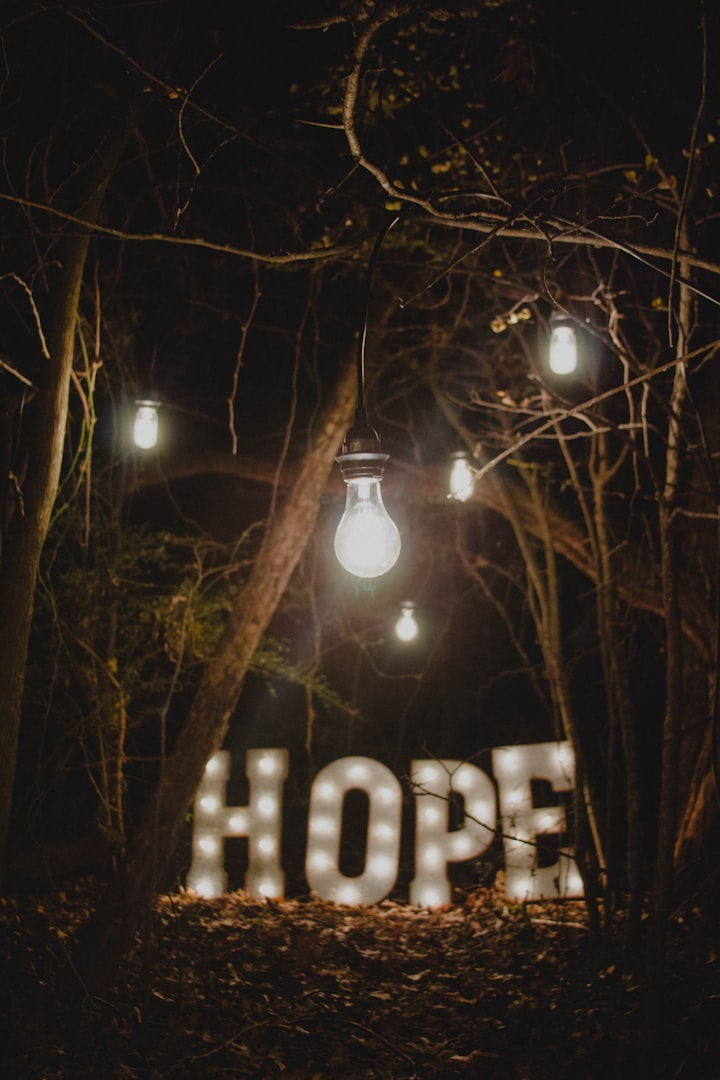City of Brotherly Love
Where I come from has a complicated history and an unsure future, but that's what I love about it.

Concrete jungle. That’s what most people think of when they imagine an overpopulated city filled with the working poor. My mother was a master of the lost art form of making a dollar out of fifteen cents. She robbed Peter to pay Paul. Living paycheck to paycheck was the way of life you could set your watch by. Every first of the month, the lines would travel out the door at the local corner store as people handed over their food stamps for cash. That’s what most people think of when they think of my city, but that’s not where I grew up.
The City of Brotherly Love was anything but that in the late 1970s through the 1980s. South Philadelphia had always been the most segregated part of town. It’s a part of its history and a matter of pride. Devout Catholics came from Italy, Ireland, and Poland to settle here and make up their separate communities. As a young girl growing up black in the city, the churches marked the borders of where I was allowed to travel. Being Catholic was the only thing I had in common with my neighbors. But to most of them, when it came down to it, that was all that mattered.
My grandmother used to say that, “Philadelphia only had two seasons, winter and summer. Everything that happened in between was a quick cool down or warm-up.” Living poor in the city meant that you hibernated through the winter. No one in my neighborhood owned a snowsuit. Our winter coats were only warm enough to get us the two blocks to the neighborhood Catholic school and back again. After a snowstorm, kids ventured out to have a quick snowball fight only to return inside to the warmth of their living rooms for hot chocolate and their grandmother’s stories.
Once spring arrived, everything changed. There weren’t any trees downtown to mark the passage of spring. No dogwoods to exude pretty pink flowers or tulips to line driveways. Our front yard was poured concrete. I was an adult before I would ever walk barefoot through the grass on a warm spring afternoon. But I could also tell the moment that winter exchanged time with spring. You could smell it in the air, sweet with hints of Coppertone.
Every Saturday evening in the summer, after dinner, my grandmother and I would watch the little old Italian women walk to mass dressed in their best clothes. Promptly at 6 o’clock, they would all walk back home again. In August, we all went to the Jersey Shore and stayed in the same motel we’d stayed at the year before with the same people. The repetition was comforting. Everything seemed easy, even though most Americans struggled to put food on the table in the ’80s. I sat happily content in my little bubble while gangs formed and people overdosed on crack in abandoned houses.
The first time I went back home was after twenty years, two marriages, and three children. The old neighborhood wasn’t the same as I remembered it. The bar on the corner where my Uncle took me for my first Shirley Temple was now a daycare center. The corner stores closed, and nothing came in to replace them. The bakery where I waited first in line every Sunday morning with my Grandmother for fresh-baked bread, long abandoned.
People no longer sat outside in the evenings to talk with their neighbors. Gangs and the Opioid Crisis took care of that. Long gone are the fireflies that I used to chase as soon as the sun went down. They have been replaced by the walking dead. The people so high on opioids that they can barely stand, held up by the Stop signs and draped across fire hydrants.
For as much as I wanted to go home and show my family “my roots,” they no longer existed. A cloud of desperation hangs over Philadelphia, and my hometown will never be the same.
It’s been years since I’ve walked the streets of Philly. The loss of everything that once made my hometown beautiful is too much to bear. Maybe it was just a nostalgia so great that it was ignorant that everything was changing.
By the time I eighteen and old enough to go off on my own, I knew I wanted to leave. I always imagined I would come back. That my children would attend the same schools my family had for generations. But it’s hard to raise boys there and expect them to reach eighteen alive or unscathed. The way of the streets is too much of a lure and reels in the depressed and those desperate enough to shoot up to fade away.
I know I’ll never see my hometown again. The memory of summertime spent in the city, popping fire hydrants to stay cool, belongs to a time that no longer exists. Time and the world's illness have taken that all away, and it can never be repaired or reimagined.
(Previously written by me for Medium 1/25/21)
About the Creator
That Writer Chick
That Writer Chick is an author, essayist, and mother living in Colorado. T.W.C. holds a Master's in Professional Writing and is a Yale University Writer's Workshop Alum. If you love reading her words consider subscribing and leaving a tip.






Comments
There are no comments for this story
Be the first to respond and start the conversation.